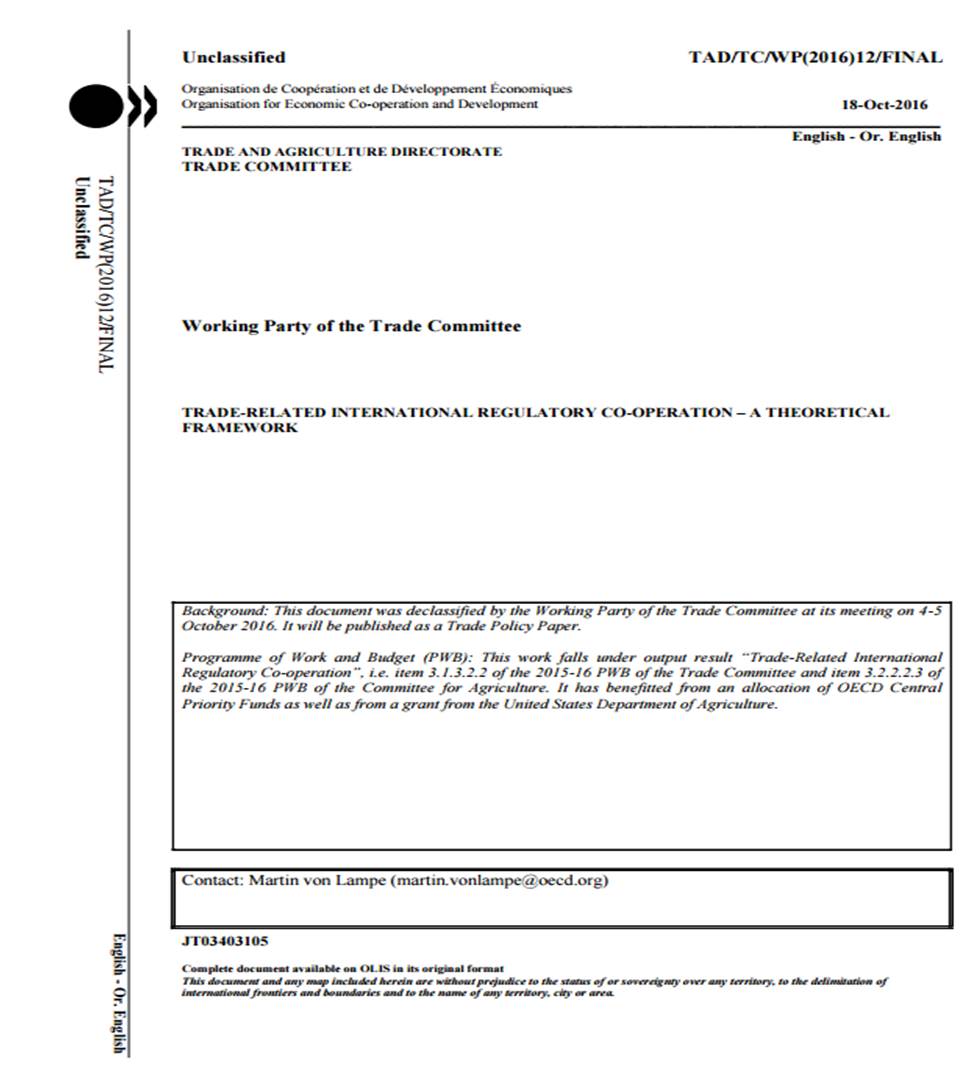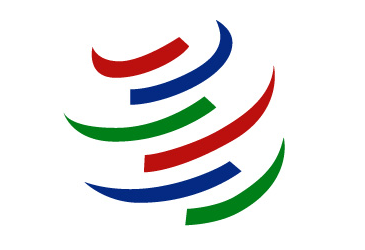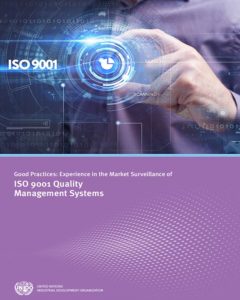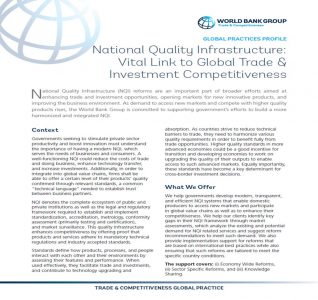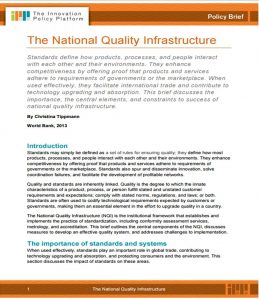Research
Trade-related International Regulatory Cooperation – A theoretical framework (OECD, 2016)
Reducing unnecessary trade costs is an important aspect of International Regulatory Co-operation (IRC). But trade costs are only one of the many considerations that countries take into account when engaging in bilateral, plurilateral or multilateral efforts to address non-tariff measures that are related to differences in regulations. They are also concerned about pursuing domestic regulatory objectives. This report develops an analytical framework to help understand the trade-offs between trade costs and domestic regulatory objectives that will determine outcomes of IRC. It shows the possible scope and landing zones of IRC initiatives, ranging from simple information exchange to negotiations to harmonize regulations between countries. The analytical approach is based on economic game theory and provides a basis for regulators and trade negotiators to determine which specific IRC approach would be promising to pursue.
The report states that the ILAC and IAF global arrangements provide the platform for trade cost reductions. A full copy of the report is available from the OECD website.

